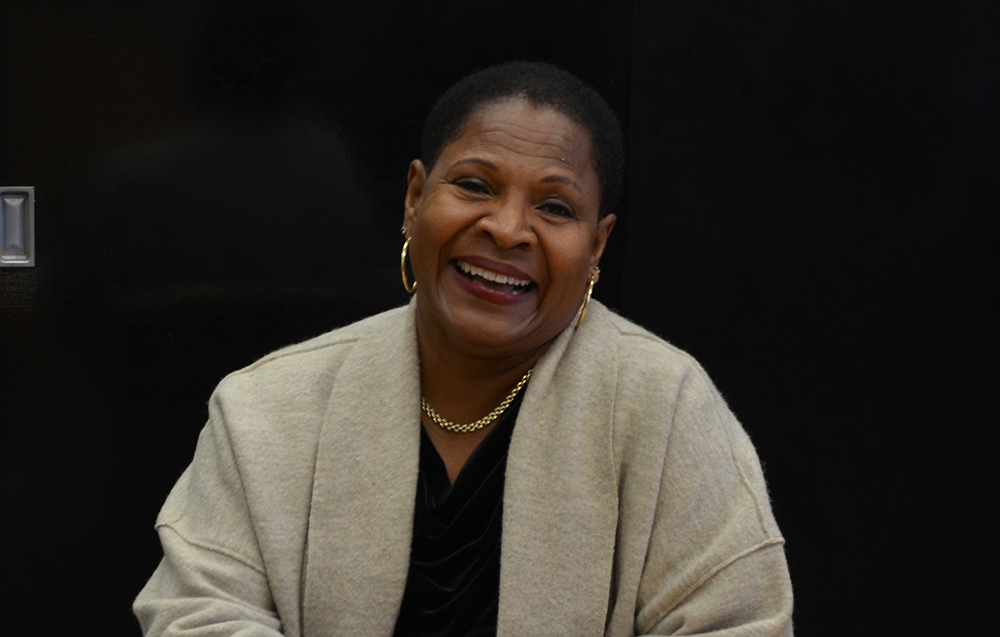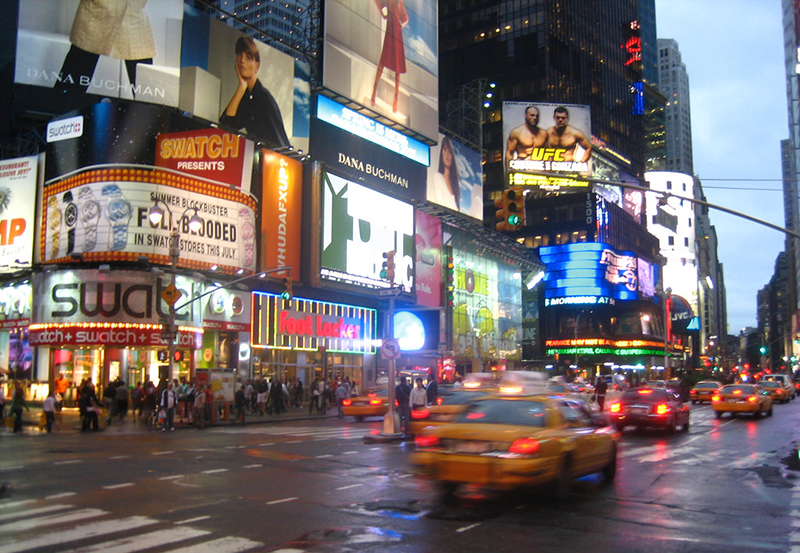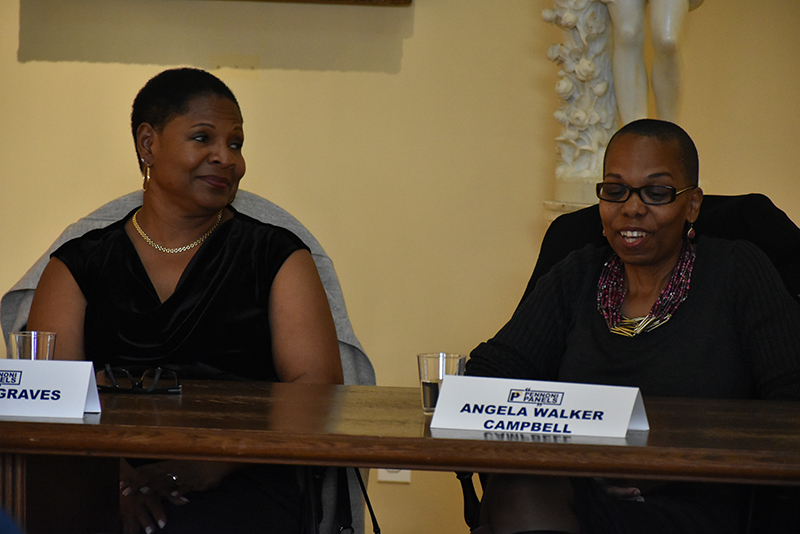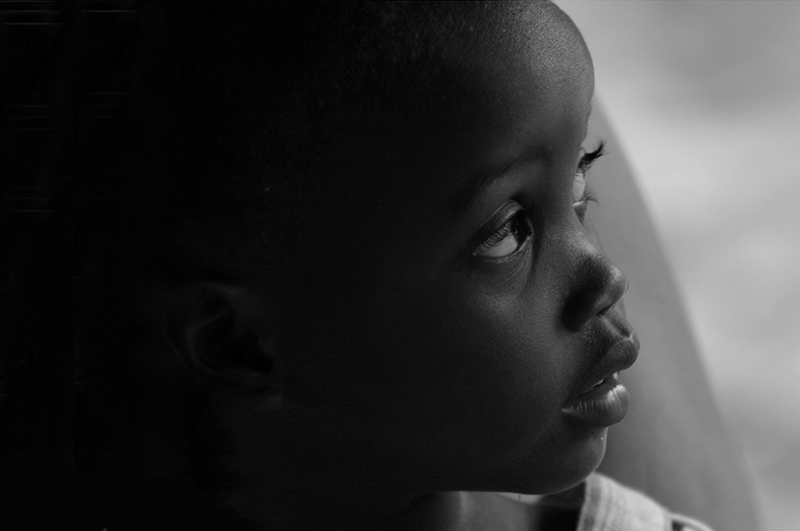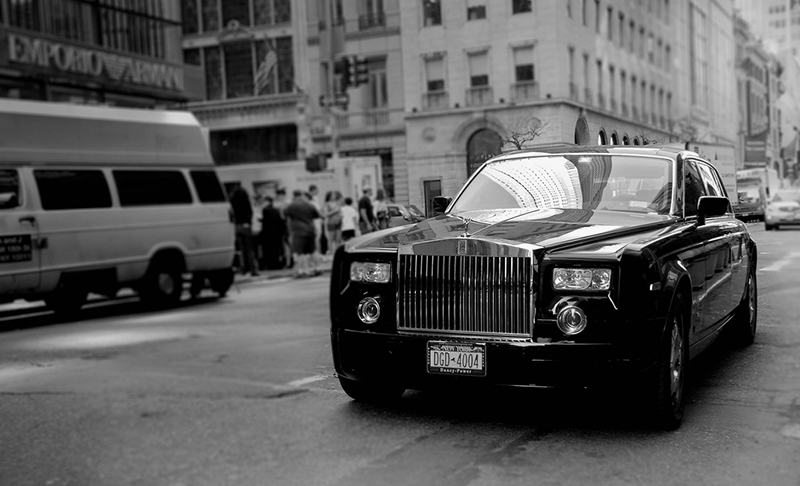BW: I noticed that you are very visual in your language. Do you think that’s because of your work in advertising?
VG: That’s possible, because as a creative director I had to really focus on being more visual. I came to being a creative director from being a writer. I had to go to study film and learn how to be a more visual person. I take it as a great compliment that you find my work visual, ’cause that is the part that I probably had to work at hardest: to remember to be descriptive.
BW: Which job do you like more: being a writer or being in advertising? Do you have a preference?
VG: I don’t have a preference. I’ve kind of been some sort of writer my entire life. Being a copywriter in advertising is still to be a writer, and there are times when you even get to write something that’s longer.
The wonderful thing about being a writer at this stage of my life is that advertising is one of those businesses they refer to as a young person’s business, and it’s really true. There is an expiration date on an advertising career, and the thing I love about being a writer is that I can do it for as long as I want to do it, for as long as I live, and I have no client. I love it.
BW: Toward the beginning of your book, you talk about a meeting where you called yourself a token. Do you ever still feel that way in writing or while working in advertising?
VG: I have become accustomed over the years to being the only black person in a lot of settings. Generally, I’m the only black person when I arrive and I’m not when I leave, or I’m not after a while, which is something that I kind of dedicate myself to.
I don’t think of myself as being there as a token, but I do think I’m very aware of myself being there as the only black person and the bringer of insights that my colleagues . . . I’m continually amazed at how little insight my colleagues have. To say to them, “You know, that character in the commercial who’s a basketball player — there’s another role for a doctor. You know, that person could be black too.” Never occurred to them. You know, that sort of thing happens to me a lot in that type of setting.
Read It
Pressure Makes Diamonds: Becoming the Woman I Pretended to Be by Valerie Graves
BW: You made a point about saying how you were not the only black woman or black person in your workplace after you’re about to leave. Is that because of you? Do you help with hiring and working on finding qualified people to work in your workplace?
VG: Absolutely it is. At the Advertising Council, the Campaign Review Committee, as much as you can imagine, is reviewing the most visible public service work that’s done in the country. I wasn’t the only black person when I arrived, though. Caroline Jones, who was really a pioneer of multicultural advertising, was there before me, but she unfortunately became ill and ultimately passed away. She was there before me at the ad council, but after her, for a long time there was no one but me. I made them aware of Angela, for example, and another person who became a member of the CRC.
BW: You have your mentee. How has mentoring changed your life and changed the way that you approach hiring people in workplaces? Do you try and reach back and always find a mentee that you think would be good for positions?
VG: Nothing makes me happier than to hook somebody up. Earlier in my career, I had to learn that you can’t bring everybody with you. You have to be selective about the people that you bring in and pretty much assure that they’re going to be successful in the situations that you get them into.
Actually, I wrote in my book about that. It’s called “Putting My Foot In It.” My kids are all over the place. Someone I would consider a mentee is the executive creative director of Spike DDB Advertising. There’s Angela, who until recently was at an agency called Prime Access. It is the thing that gives me the most joy, period, in my professional life, is being able to help someone else with their career in advertising or to have a career in advertising at all. Angela was not in advertising when I met her.
BW: Do you think that more workplaces need to focus on mentorship to help create diversity in mostly white spaces?
VG: Yes, just because the numbers are still dismal; still are hovering somewhere below five percent minority representation of people of color in the advertising industry and especially in the professional jobs.
Absolutely everybody needs to focus on being a mentor. But that having been said, I’ve never met anybody who wasn’t a mentor for other people of color to get into business. I’m sure there are some. There are people I used to refer to as people who were hiding out. They’ve got a nice job in a nice general market agency and they’re happy to be there, and some of them feel that they don’t want to be singled out because they’re black. I don’t have any problem with that. You can single me out because I am a black person, because I am a woman, because of anything that is authentically me. But there are some people who probably don’t mentor because they’re just not that comfortable themselves being the black person in that situation.
BW: Were you always comfortable being the only black person in a workplace? Or is that something that you became comfortable with the more you’ve done it over the years?
VG: When I first got into advertising, I was in a car group with one other woman who was Asian, and she was my partner, and 22 guys. I was so happy to be in advertising, I wouldn’t have cared who else was there. In the whole company, there was a black producer and there was a black woman in data processing and that was it. Anyway, so I was not uncomfortable because I also at that time was simultaneously living in the world of rock and roll and that diversity. I was pretty comfortable with that.
BW: Do you think that growing up in your hometown before the recession made you more of an optimist?
VG: Yeah, because things were pretty good in that hometown. I was just saying . . . Paula used the word “poor” describing my circumstances when I was a kid, and I didn’t correct it during the interview, but I thought we weren’t really poor. My father worked for Fisher Body, had a union job, so we weren’t really poor. I was just aware of other people having so much more and the life that I saw on television and all of the prosperity around me, because Pontiac is surrounded by more affluent communities. I mean, Bloomfield Hills, Oakland County is one of the wealthier counties in the nation. Pontiac just happens to be in it, so that made me optimistic, too. I saw a lot of prosperity, and I was too stupid to know that I couldn’t do just anything I wanted to do.
BW: Do you think that your optimism is something that your mother gave you? You talked a lot about how your mom made it so that you never wanted for anything.
VG: Everyone around me was very encouraging. I’m not sure whether you’re African American or more African —
BW: African American.
VG: OK. All right. Our community loves smart children and encourages them greatly. At least it was that way when I was growing up. So it was my mother, it was my family, but it was everyone else too. It was an entire community. It was everybody at church and then just this extended group of people who started to hear about me who just encouraged me to believe that I was, when it came to being smart, a special person. That was everywhere.
BW: Do you think that you bring with you the ideals of your hometown when you’re creating advertisements? Do you think about, “Oh, well, what will people who I know like?” Is that kind of how you approach things?
VG: Mm-hmm. Especially once I went into multicultural advertising, because I brought everything I know about African-American people. It was very important to me that we be authentically represented, and it was very important to me too to be an expert and a specialist in terms of black culture, and that was the incubator of whatever I knew about black culture, along with everything else that I’ve learned in my life. Yeah, I would say that I represent Pontiac. As much as I really wanted to get out of Pontiac, Michigan, I took Pontiac, Michigan with me everywhere that I went.
BW: You talk about being a specialist. Did you ever go back to school and study Africana studies or anything, or is it more personal experience?
VG: No, it was more personal experience, and that’s actually more valuable in advertising too because you’re dealing with how people feel about products. My boss also, Byron Lewis, the founder of UniWorld, is very eloquent on the subject of black culture and what motivates black people to buy certain kinds of products and coined phrases like the “portable status symbol” that had to do with why we buy top-shelf liquor, which was one of our clients when I joined his agency. Why do we drive nice looking cars? Because these are things that we can afford. That car doesn’t have to be in a specific neighborhood where you might not have been allowed to buy a house, or certainly not encouraged to buy a house — that kind of thing. A lot of it is based on what I know, what I feel, but my instincts are, after all this time, really pretty good about black consumers and black consumer behavior.
BW: Does working in advertising change the way that you view products when you’re purchasing things yourself?
VG: I’m sure that it must, although I couldn’t exactly tell you how. Things that don’t matter mostly, like I think, “Oh, there’s a line extension,” you know? So and so is making XYZ, and that’s logical or it isn’t. “Why are they making that? There’s no connection between what they currently make and that.” But no, I don’t think about advertising changing the way that I look at products. I know that I’m not impervious to it. Not at all. I’m probably more susceptible to good advertising than other people.
BW: After this election, with President-Elect Donald Trump, are you ever concerned that the advances that you have made for having minorities and people of color represented in media, especially in advertising? Are you ever worried that will go backward?
VG: I’m worried about everything having to do with minority people, and not really just because of Donald Trump, because he’s not going to be making a whole lot of decisions. I don’t think that really impacts advertising. It is going to be the ideas and the worldview that he represents. I’ve seen it before. I came into advertising in one era and then saw Ronald Reagan get elected. I would never have been hired in the way that I was hired if that had happened during the Reagan era because the whole mood changed, shifted, from affirmative action is a good goal and, as a matter of fact, if you’re going to have a government account, you better have pretty good-looking numbers. That’s what allowed people like me to get into the industry, even if you weren’t directly working on one of those accounts. Yes, I’m concerned about everything having to do with issues involving people of color.
BW: Do you have any advice, especially for young minorities in school who are seeing the election and who are trying to get into marketing or more creative jobs and are feeling a little discouraged at the moment?
VG: I think they need to realize that things have been worse, that there’s no logical reason that I should’ve had a career in advertising, except that I believed that I could do it. The subtitle of my book is Becoming the Woman I Pretended to Be, and that pretending has to do with things like pretending that I had a career in advertising, that I was That Girl, which was an old Marlo Thomas TV series, where she was a young career woman in New York. I just sort of pretended myself into being a black version of that person, because there wasn’t anybody around for me to look at and say, “I want to be like Michelle Obama.” They have many more role models now to look at. There are many more avenues that are open that aren’t going to be so affected by this election or any election. Do not be discouraged. We have been through worse. This is a great time to be part of a culture that has slavery in its history because I can look back and just know how much worse things have been and how people persevere and make progress. •
Images courtesy of Laurel Murr, crdotx, adactio, beluga 7, and Alexander McCarter via Flickr (Creative Commons)
